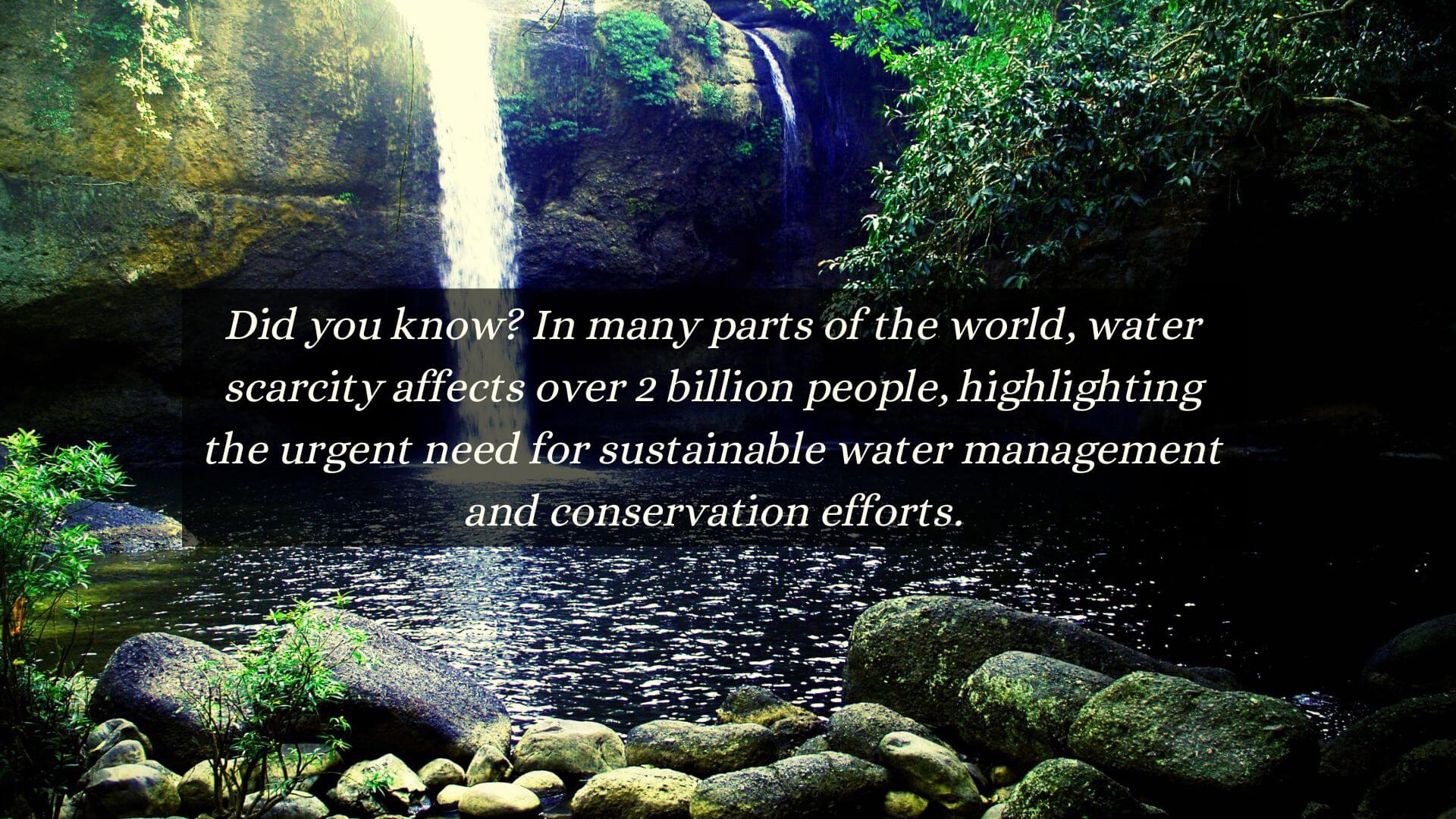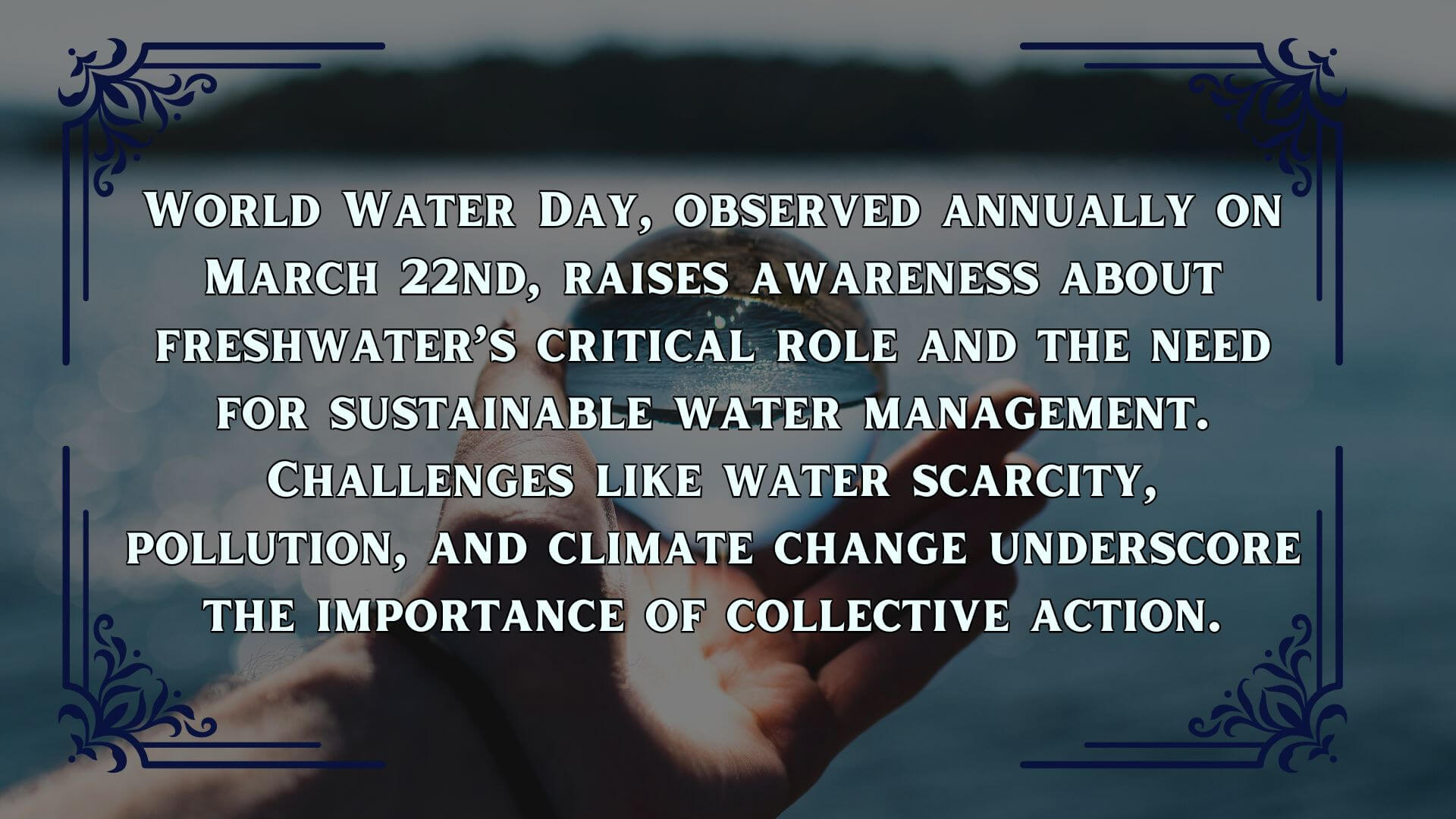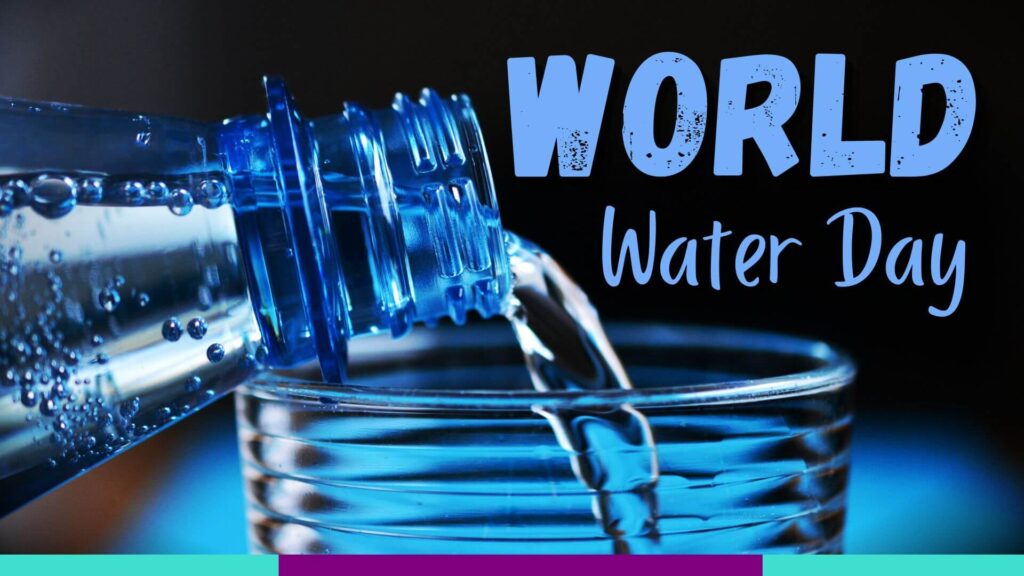Every year on March 22nd, individuals worldwide come together to honor World Water Day, which is dedicated to increasing awareness of freshwater’s importance and promoting sustainable water resource management. Established by the United Nations in 1993, this annual event serves as a reminder of water’s essential role in supporting life and ecosystems across the planet.
Water is more than just a basic necessity; it is the cornerstone of life itself. From drinking and sanitation to agriculture, industry, and energy production, water is indispensable to human health, economic prosperity, and environmental sustainability. Beyond its practical uses, water holds cultural, spiritual, and recreational significance in communities worldwide. Despite its vital importance, the world faces numerous challenges in ensuring access to clean and safe water for all. Water scarcity, pollution, inadequate infrastructure, climate change, and unequal distribution are among the primary issues threatening our water resources. Many regions grapple with water scarcity, where demand exceeds supply. Factors such as population growth, urbanization, and unsustainable water management exacerbate this issue, leaving millions without reliable access to fresh water. Pollution from industrial discharge, agricultural runoff, plastic waste, and untreated sewage contaminates water bodies, posing significant risks to human health and ecosystems. Addressing water pollution requires concerted efforts to regulate pollutants, improve waste management practices, and promote sustainable consumption patterns.
Many regions grapple with water scarcity, where demand exceeds supply. Factors such as population growth, urbanization, and unsustainable water management exacerbate this issue, leaving millions without reliable access to fresh water. Pollution from industrial discharge, agricultural runoff, plastic waste, and untreated sewage contaminates water bodies, posing significant risks to human health and ecosystems. Addressing water pollution requires concerted efforts to regulate pollutants, improve waste management practices, and promote sustainable consumption patterns. Climate change intensifies water-related challenges through altered precipitation patterns, rising temperatures, and extreme weather events. These changes disrupt water cycles, exacerbate droughts and floods, and threaten the availability and quality of freshwater resources. In the face of these challenges, concerted action is needed to ensure the sustainable management of water resources. Governments, communities, businesses, and individuals all have a role to play in promoting water conservation, improving water quality, and enhancing water access for all.
Climate change intensifies water-related challenges through altered precipitation patterns, rising temperatures, and extreme weather events. These changes disrupt water cycles, exacerbate droughts and floods, and threaten the availability and quality of freshwater resources. In the face of these challenges, concerted action is needed to ensure the sustainable management of water resources. Governments, communities, businesses, and individuals all have a role to play in promoting water conservation, improving water quality, and enhancing water access for all. Investments in water infrastructure, such as dams, reservoirs, pipelines, and wastewater treatment plants, are essential for ensuring reliable access to clean water and sanitation services. Additionally, nature-based solutions, such as wetland restoration and watershed management, can enhance water quality and resilience to climate change. “We have moved to an era from water saves us to we should save water.”
Investments in water infrastructure, such as dams, reservoirs, pipelines, and wastewater treatment plants, are essential for ensuring reliable access to clean water and sanitation services. Additionally, nature-based solutions, such as wetland restoration and watershed management, can enhance water quality and resilience to climate change. “We have moved to an era from water saves us to we should save water.”
Written By:

Rtr. Muzna Hameed
(Junior Blog Team Member 2023-24)




